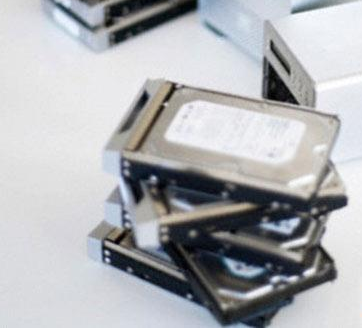(单词翻译:单击)
Hoarders are typically thought of as people living in houses packed full to the brim with boxes of old junk.They typically refuse to throw away meaningless wrappers and hold on to random objects that most people would have discarded long ago.
“储物狂”一般被认为是指那些屋子被各种废旧物品堵满的人。他们一般拒绝丢弃毫无意义的包装袋,并保留着大多数人早已丢掉的东西。
But nowadays, you no longer have to hold on to old notebooks or refuse to throw out old pizza boxes to be considered a hoarder, according to a recent report.Instead, a new form of hoarder has arisen: Digital hoarders.
但时至今日,“储物狂”不再仅仅意味着使用最破旧的笔记本,或者拒绝丢弃过去装披萨的盒子了。一种新型的“储物狂”已经诞生,那就是:数码囤积狂。

A report published by BMJ Case Reports, examined a 47-year-old man whose obsession with hoarding digital pictures severely interfered with his day-to-day life, preventing him from sleeping and even leaving his home.
《英国医学杂志》报道了一名47岁男子的症状:他沉迷于储存数码照片,这严重干扰到了他的日常生活,让他没时间睡觉,甚至整日宅在家里。
The man was formerly diagnosed with autism and hoarding tactile objects – a condition that has been documented in the mental health reference manual DSM-5.But at the time the man was checked into an outpatient clinic, there had been no previous formal diagnosis of digital hoarding.
该男子之前被诊断为自闭症和囤积实物症--这种疾病在心理健康参考手册第五版有记录。但该男子在检查以前没有正式被诊断为数码囤积狂。
According to the case report, the man mostly hoarded objects with little to no economic value – like paperwork and bike components – because he felt they would be of use to him in the future.As as a result, his house was extremely cluttered.
根据病例报告,该男子总是囤积缺乏经济价值、甚至毫无价值的东西--比如文书和自行车配件,因为他觉得这些东西将来可能有用处。结果他的房子一片狼藉。
Eventually, after obtaining a digital camera, the man began to hoard digital pictures, as well.Digital photography became his primary daytime activity, and he took up to 1,000 pictures each day, mostly of landscapes, the report said.
后来有了数码相机后他开始囤积照片。报告显示,数码摄影成了他的主要日常活动,每天他要拍1000张左右的照片,多数是风景照。
But, as with the tactile objects he hoarded, the man struggled to discard the pictures.He ended up using four external hard drives to maintain the original pictures, as well as four additional hard drives to store the backups.
然而,和他囤积的实物一样,他很难舍弃自己拍的照片。最后,他用了4个移动硬盘来保存原图,还有另外4个移动硬盘存储备份。
The man didn't even look at the pictures he saved, though he was convinced he could use them in the future when new technologies became available, the report said.He spent three to five hours each day organizing the pictures, which led to feelings of frustration. Organizing the pictures also interfered with his sleep and prevented him from partaking in other activities, including cleaning his house, relaxing or going outside.
据报道,这个家伙甚至看都不看自己保存的那些图片,但他确信未来出现新技术时这些图片会有用武之地。他每天要花3~5个小时来整理图片,这导致他产生了挫败感。整理图片也妨碍了他睡眠,使他无心参与其他活动,包括收拾房间、休息或者出门。
This patient's case is an extreme circumstance; merely forgetting to clear out your hard drive doesn't mean you are a digital hoarder.
该病人的例子属极端情况;如果你仅仅是忘记清理硬盘,这不意味着你就有数码囤积癖。


